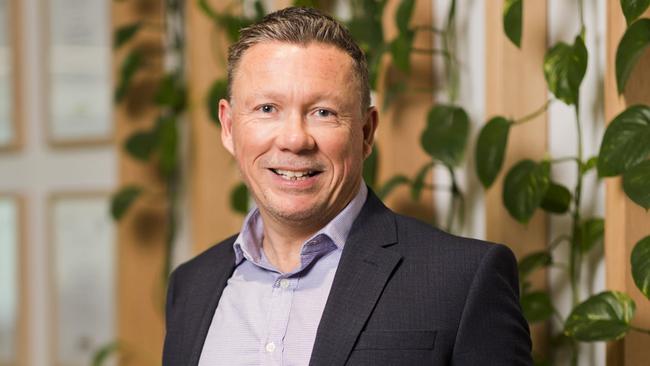Judo Bank CEO Chris Bayliss: Another year of steady interest rates is possible
Chris Bayliss expects the Reserve Bank to begin trimming interest rates in the second half of 2025.

Economy
How would you rate the momentum of the Australian economy as we head into 2025? Official forecasts have Australia trimming interest rates from the first half of calendar 2025, is that consistent with your view? What are you seeing around inflation in your own business?
What we have seen over the past couple of years, is that there are many successful SME entrepreneurs in all sectors who can adapt and work through all parts of the economic cycle. At Judo, our goal is to support these entrepreneurs and this experience has reinforced the value of our model and the benefit of having a highly skilled, highly trained relationship banker who deeply understands both their business and the environment they are operating in.
The economy is proving stronger than expected and business conditions are more stable than 12 months ago. The majority of our customers are performing very well and are demonstrating their resilience by managing their margins and preserving healthy balance sheets against higher interest rates and rising costs. Understandably there are some customers facing challenges, particularly those in sectors reliant on discretionary consumer expenditure. We continue to work with closely with these customers.
We could see another year of steady rates. Inflation is only gradually drifting down while the economy is showing signs of improvement with continued employment growth and some green shoots on consumer spending. We expect the RBA to begin trimming rates in the second half of 2025.
Outlook
What excites you heading into 2025? Are you likely to increase, hold steady, or trim your investment spend?
It’s an exciting time for our business and I have never been more optimistic about the future of Judo.
After eight years, and a lot of hard work, we have passed many significant milestones, and finally have the bank we always dreamed of – our core SME franchise is humming, we have a team who continue to challenge the inertia of SME lending, and a management team with deep banking expertise.
With a bigger balance sheet, we are looking towards an increasing number of growth and investment options, including geographic expansion – our aim is to operate across 30 locations nationally by June 2025 – along with reviewing adjacent products to meet more of the lending needs of SMEs.
Reform
As we move into an election year, in your mind, what’s the single biggest lever that can/should be used to lift Australia’s competitiveness or productivity? This could be across any area from labour market, tax reform, training or other areas to encourage investment.
The burden of regulation for SMEs in Australia is a significant challenge, impacting the ability for SMEs to grow, innovate, and compete effectively.
When I speak with our customers, it’s the disproportionate challenges of compliance costs and the time and resources they need to navigate things like health and safety laws, employment laws, tax requirements, or even things like food and safety regulations, that are called out.
The SME sector is the backbone of our economy. We should be looking to reduce the red tape and make it easier for SMEs to thrive, rather than add more complexity as tends to happen. This is particularly important now alongside the pressures of the current economic environment.
Geopolitics
Will a Donald Trump presidency have a potential impact on your business or sector (tariffs or streamlined regulation)? Does geopolitics drive a bigger part of your decision-making?
“There’s been a lot of macro-economic and political uncertainty over the past few years – a pandemic, inflation, escalating global conflicts, and now the question of what a second Trump presidency will mean for Australian business. As a leadership team, we always keep one eye on the ever-changing macro environment and are agile where we need to be. However, most of our focus is on executing our clear and simple strategy. Right now, while being alert to it, the geopolitical environment is having little impact on our long-term strategic decision making.”
People
Has your organisation’s approach to flexible working – including working from home – evolved during the year. Is this likely to change further into 2025?
Our guidance on flexible working is that we’d love our people to be in the office at least five days a fortnight. We have no plans to change this, and in fact, most of our team prefers to be in the office a lot more than this.
I think a lot about the needs of a young and growing business like Judo, and the importance of the office environment for culture, building relationships and innovation as we grow. Right now, I feel like we have the balance right between the rewards of this, and all the benefits flexibility brings for the personal and professional wellbeing of our team – and these benefits have been made very clear in the years since the pandemic. Without a doubt, successful flexible working arrangements require a lot of trust and an embedded culture of ownership, and that’s what we focus a lot on as a leadership team at Judo.
Technology
Where is your organisation along the AI journey – is it in the developmental stage, or are you now using the technology at scale across your business? If so, are benefits matching the promise?
We’re busy testing and experimenting with AI technology to identify opportunities for enhancing our relationship-led customer proposition or to make it easier and faster for our bankers and team to serve our customers. We have a particular focus on the smart use of data, advanced analytics and machine learning as we scale our bank.



To join the conversation, please log in. Don't have an account? Register
Join the conversation, you are commenting as Logout